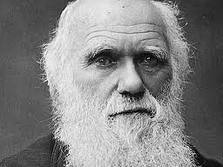
David Daniell and The Bible in English

This year is the 400th anniversary of the publication of the King James Bible (published in 1611). I will be presenting a paper at a Union University/Ryan Center for Biblical Studies conference this coming fall: KJV 400 Legacy and Impact. This has given me a good excuse to buy and begin to read David Daniel's The Bible in English (Yale, 2003). Thus far it is absolutely wonderful. A few years ago I read his William Tyndale biography, and I absolutely loved it. The Bible in English is 700+ pages, plus appendices/bibliography/indices. If you are looking for a shorter, but nonetheless wonderful book on the King James Bible, and its significance, you might look at Leland Ryken's The Legacy of the King James Bible: Celebrating 400 Years of the Most Influential English Translation (Crossway, 2011).
- Details
- Category: Recommended Reading Recommended Reading
- Published: 10 March 2011 10 March 2011
- Hits: 4625 4625
Thoughts on Reading

Over at The Gospel Coalition web site I share some thoughts on reading, when to read, and what I am reading at present. There is lots of good material at The Gospel Coalition's site. Fred Sanders and Carl Trueman also share thoughts on reading.
- Details
- Category: Recommended Reading Recommended Reading
- Published: 10 February 2011 10 February 2011
- Hits: 3922 3922
D.A. Carson's For the Love of God

Over at The Gospel Coalition's web site, Don Carson has a "blog" of sorts. It is not really a blog, but rather a free online version of his wonderful books For the Love of God (2 volumes, Crossway). In these "posts" (sections of the books) Carson follows Robert Murray McCheyne's outline for reading the Bible in a year, and offers comments on the passages read on a given day. Carson's two volumes are perhaps the best "devotional" reading I am aware of.
- Details
- Category: Recommended Reading Recommended Reading
- Published: 03 February 2011 03 February 2011
- Hits: 5261 5261
Unbelievable--A Helpful UK Radio Program

The Green family spent a wonderful four months in Cambridge in 2010, on study leave. One of the things I discovered was the "Unbelievable" radio program, hosted by Justin Brierley. This program generally follows a debate format, often between a Christian and a non-Christian. Brierley is a good host/interviewer, and usually has intriguiging and thoughtful guests. If you spend time in your car, or if your work schedule/rhythm of your life allows it, these are great programs to listen to. Since it is impossible to read all one might want to read, this program can be a great way to stay abreast of various issues. The web site is: http://www.premier.org.uk/unbelievable. Highly recommended.
- Details
- Category: Recommended Reading Recommended Reading
- Published: 30 January 2011 30 January 2011
- Hits: 4609 4609
Getting Medieval . . .

Here is an article from the Chronicle of Higher Education. This guy is on to something. The possibility of true education in the contemporary college or university is extremely difficult, for lots of reasons. Looking to the medieval era is good counsel. The impetus to start Augustine School (www.augustineschool.com) is due to certain sympathies with this author's perspective. Here is the article: http://chronicle.com/article/Getting-Medieval-on-Higher/126008/
- Details
- Category: Recommended Reading Recommended Reading
- Published: 26 January 2011 26 January 2011
- Hits: 4176 4176
The Sad Development in Darwin's Life

These are perhaps some of the saddest words ever penned, at least on my view. Here Charles Darwin, in his autobiography, recounts his trajectory from (1) loving literature, poetry, music, beauty, to (2) having no interest in such things, and being simply a "machine" that "grinds facts." I was originally led to this quote when reading John Piper's Desiring God, I believe.
Charles Darwin on his own development:
Up to the age of 30 or beyond it, poetry of many kinds . . . gave me great pleasure, and even as a schoolboy I took intense delight in Shakespeare. . . .
Formerly pictures gave me considerable, and music very great, delight.
But now for many years I cannot endure to read a line of poetry: I have tried to read Shakespeare, and found it so intolerably dull that it nauseated me.
I have also almost lost any taste for pictures or music. . . .
I retain some taste for fine scenery, but it does not cause me the exquisite delight which it formerly did. . . .
My mind seems to have become a kind of machine for grinding general laws out of large collections of facts, but why this should have caused the atrophy of that part of the brain alone, on which the higher tastes depend, I cannot conceive. . . .
The loss of these tastes is a loss of happiness, and may possibly be injurious to the intellect, and more probably to the moral character, by enfeebling the emotional part of our nature.
- Details
- Category: Recommended Reading Recommended Reading
- Published: 21 January 2011 21 January 2011
- Hits: 4558 4558